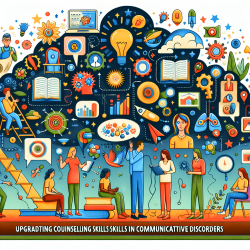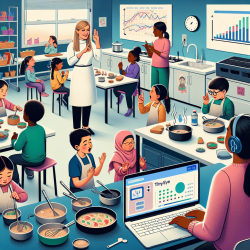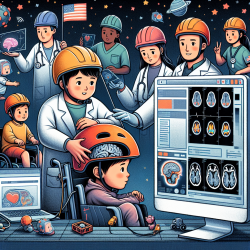The COVID-19 pandemic has necessitated a sudden shift to remote learning, presenting unique challenges, particularly for children with developmental disorders (DD). A recent study, "The Impact of School Strategies and the Home Environment on Home Learning Experiences During the COVID-19 Pandemic in Children With and Without Developmental Disorders," offers valuable insights into the factors influencing these children's learning experiences. This blog explores key findings from the study and provides actionable recommendations for practitioners to enhance remote learning outcomes for children with DD.
Key Findings from the Study
The study applied the Opportunity-Propensity (O-P) Model to investigate the predictors of home learning experiences for children with and without DD during the pandemic. Key findings include:
- Children with DD had more negative remote learning experiences compared to their typically developing (TD) peers.
- Teacher alignment and autonomous motivation were significant predictors of positive learning experiences.
- Parental involvement and competence also played crucial roles in shaping children's learning outcomes.
Actionable Recommendations for Practitioners
1. Foster Teacher Alignment
One of the study's most significant findings was the impact of teacher alignment on children's learning experiences. Practitioners can encourage schools to:
- Ensure consistent communication channels and software usage across different subjects.
- Align deadlines and task structures to reduce confusion and cognitive load for students.
2. Enhance Autonomous Motivation
Autonomous motivation was found to be a strong predictor of positive learning experiences. Practitioners can support this by:
- Adopting a need-supportive teaching style that connects tasks to students' personal interests and goals.
- Using inviting communication styles and providing meaningful rationales for learning activities.
- Offering choices in assignments to increase student engagement and ownership.
3. Utilize Teacher-Driven Methods
The study highlighted the importance of teacher-driven methods, such as live online lessons and recorded sessions, in enhancing learning outcomes. Practitioners should advocate for:
- Incorporating more teacher-driven methods alongside assignment-driven approaches.
- Providing informative feedback on assignments to support continuous improvement.
4. Continue Specific Therapy and Support
Children with DD often rely on consistent therapy and support, which were disrupted during the pandemic. Practitioners should ensure:
- Continued access to specific therapies, even through teletherapy if necessary.
- Maintaining structured routines and visual supports to aid comprehension and reduce anxiety.
5. Address Emotional and Cognitive Challenges
The study found that COVID-19 related worries negatively impacted learning experiences. Practitioners can help by:
- Providing emotional support and opportunities for children to discuss their concerns.
- Implementing strategies to manage anxiety and improve emotional regulation.
Encouraging Further Research
While this study provides critical insights, further research is needed to explore other factors affecting remote learning for children with DD. Practitioners are encouraged to stay updated with ongoing research and integrate new findings into their practice.
To read the original research paper, please follow this link: The Impact of School Strategies and the Home Environment on Home Learning Experiences During the COVID-19 Pandemic in Children With and Without Developmental Disorders.










